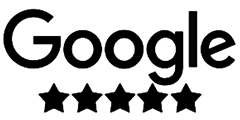
July 11, 2020
By
Kamran Awan
Category
Technology
Marketing has moved on from traditional methods to digital technology over the years. Advances in technology have made it super simple for businesses to reach their audiences via a variety of mediums. From connecting with a customer on social media to communicating via email marketing, for the modern day business it is important to engage customers on their preferred medium.
While mobile usage has increased over time, this does not automatically mean that the app experience has overtaken the web experience. Indeed, in this week's blog we wanted to compare the web versus the app experience to understand which method can prove most useful for businesses when creating content.
A question for you
The web and mobile experience try to cater to different needs. While the browser experience is all inclusive, regardless of device, the app experience is generally limited to the operating system (iOS or Android) and device. As a result many businesses are actually put off by the thought of creating and deploying a native app because of the cost and limited usage by their intended audience.
For example, we wanted to pose a question to you, our reader. Looking at your own smartphone device:
How many apps do you have for local businesses?
If you’re anything like us, the answer will be zero.
This is because when you need to contact a business to make a purchase, book a table or do some research, your go to platform is your web browser. There simply isn’t a need for customers to actually download apps for local businesses specifically.
Sure, we all have entertainment or messaging apps such as Facebook, Whatsapp and Skype, but these are focused on key aspects of our daily lives. It is for this reason that there are millions of apps in the App Store and Google Play Store that simply have under 10 downloads.
Setting the scene
Now, we are all familiar with the web and mobile apps. Talk to most people and they can quite easily recommend their browser of choice, from Google Chrome to Safari to Firefox. While each browser is different and optimised in a particular way, they can help the user access information via the internet.
On the other hand, mobile apps only really started to receive mainstream traction after the advent of the first iPhone around 2007. Since then, we have seen the creation of a multitude of apps across many different app marketplaces including iTunes and Google Play. Apps have been positioned as unlocking the native features of a mobile device which in theory should offer a richer user experience.
However, over the years, we have actually seen the lines between the browser experience and the app experience blurred with the invention of progressive/web apps. We’ll discuss these in more detail in the coming weeks but this blog is very much centered on the web versus the app experience.
The web browser
One of the biggest advantages of the web experience is the ease by which any user can access the content they want. Simply open up a browser and off you go. This is why businesses recognise the need to have a web presence and spend time creating their websites or as we like to say, their digital footprint. Businesses around the world are also looking to optimise their website for the mobile experience as they understand that users will be accessing their site from smartphones and tablet devices.
Any content that can be accessed through a browser should always be preferred by a business because it provides a frictionless way for the customer to consume that piece of information. Websites, emails, videos and social media are all examples of content that are best consumed using a web browser rather than a dedicated mobile app.
The mobile app
As we have seen in this blog, a mobile app is a lot more restrictive and limited in comparison to a web browsing experience. For example, in order for the content within a mobile app to serve any value to the recipient, it first needs to be downloaded.
However, even before we consider a customer downloading an app, the app first needs to make it onto the App Store or Google Play Store. With Apple having very specific approval guidelines and rejecting apps created by template platforms, it’s now harder than ever for businesses to have their own apps created. A business could opt for a custom developed app that is coded for their business but the price of this generally starts at £10,000 for very basic functionality.
Even with apps that do make it onto the App Store or Google Play Store, there are many barriers before a user can actually use the app. For example, an app first needs to be found and then downloaded. Next, it needs to be launched and the app permissions accepted. Only then can the app finally be navigated. At each stage of this process customers decide to exit and therefore a business is left with a very small audience which makes the economical benefits negligible for the business.
Success stories
There have been success stories for both the web and app experiences. For example, Google Chrome is by far the most popular web browser in the world. In contrast, the most downloaded app for the last decade was Facebook which again plays into the notion of a communication/social experience.
In our opinion, the web experience should always be the first point of call for any business because it has so many advantages over other types of platforms, especially mobile apps. The accessibility by all, the speed at which information can be consumed makes the browser the default experience for almost all users.
Recent changes
Before we ended this week's blog, we wanted to also touch on the global pandemic situation and how this feeds into the current narrative around the web versus the app experience. Although mobile apps have received some mainstream coverage in the last few weeks, most notably the UK Governments track and trace app, this is another example of an app that will only be useful once it has achieved widespread adoption.
For any app to be truly successful, whether it has health related or business related, it needs to have a large install base. Unfortunately, aside from vital apps that we all enjoy using that fulfill a key need, most apps largely gather dust in the marketplace.
This is why more and more businesses and customers are placing emphasis on web content that is easily consumed and is evergreen. Now more than ever, it is important for businesses to leverage the web experience to offer their customers multiple ways to interact, whether it is through their website, social media channels or any other web based solution.
Summary
As we have seen throughout this blog, we really favour the web experience over any other form of digital communication. We believe that businesses should focus on creating content that can be accessed by customers in the most frictionless way and this is where the web will always outperform the app experience.
It is for this reason that we equip our partners with a range of web based solutions from social posting to reputation management, so they can help local businesses improve their online marketing and enhance their digital footprint. To find out more about launching a Digital Agency with us, please contact our team today.
Until next time, take care.
Share this Post






















